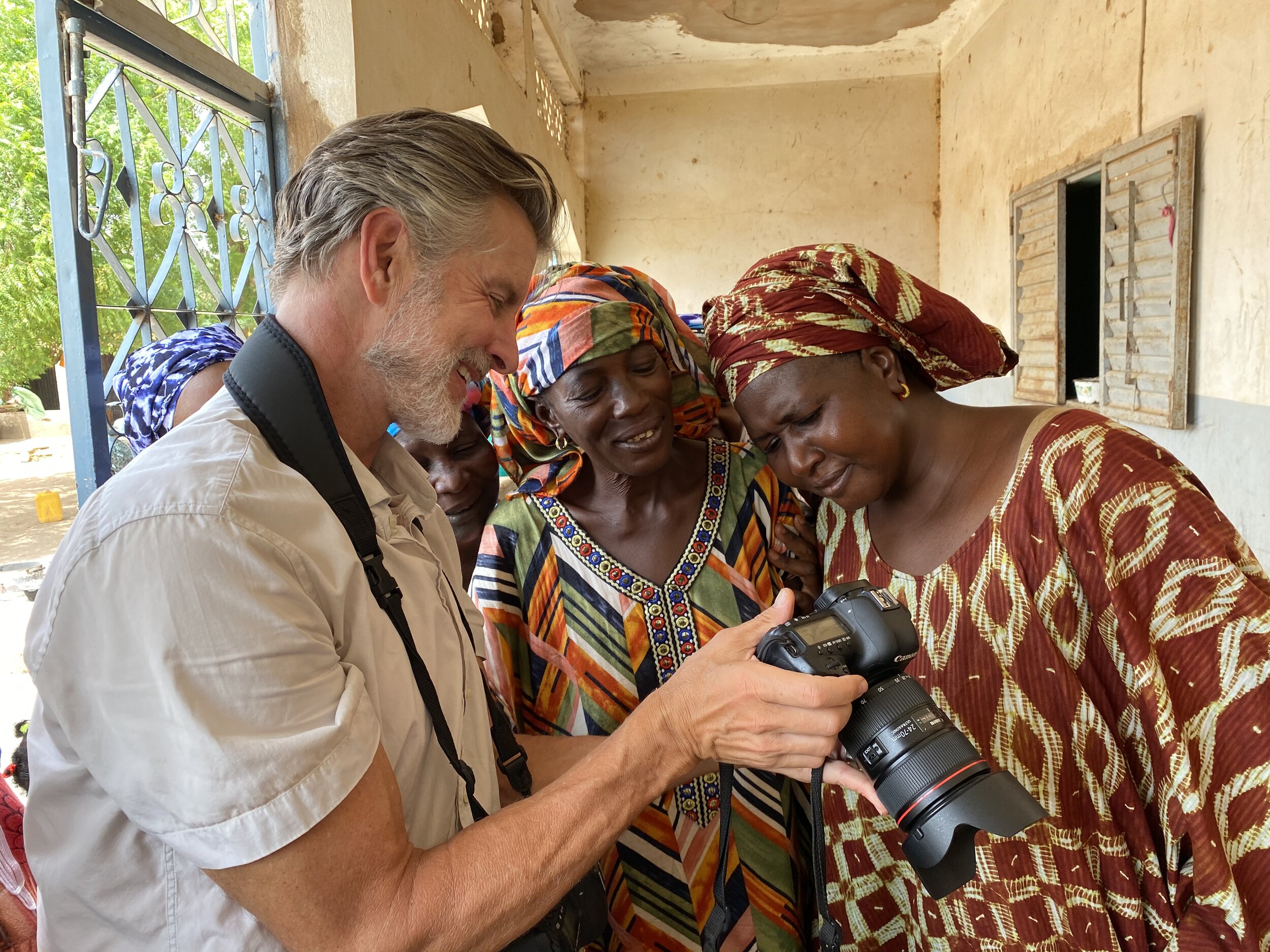
Giving Back
Working with NGOs, Non-Profits, and Charities
Garly, Mauritania welcomes Dr Ken Rutherford (video)
Ken Rutherford returns to Garly, Mauritania after 30 years.
Ken Rutherford on the top of the mountain he climbed every day during the Peace Corps.
Dr Ken Rutherford served in the Peace Corps in Garly, Mauritania, a small village of 1,000 in the desert with no electricity or running water in the late 70s. After losing his legs in landmine explosion in Somalia, Ken went on to be a huge advocate in the eradication of landmines. Ken co-founded the Landmine Survivors Network and escorted Princess Diana on her last humanitarian mission to visit landmine survivors in Bosnia-Herzegovina. He was a prominent leader in the International Campaign to Ban Landmines, which won the 1997 Nobel Peace Prize. He is included among the "one hundred most influential people in armed violence reduction" by the London-based organization Action on Armed Violence, and the recipient of numerous awards, including the Leadership in International Rehabilitation Award (Northwestern University), the Humanitarian Award presented by Sir Paul McCartney (UNA-USA) and the Human Security Person of the Year Award (University of California-Irvine). He currently is a professor at James Madison University.
His book, America’s Buried History: Landmines in the Civil War is one of the 20 most influential Civil War books.
We accompanied Dr Rutherford to Mauritania to capture his return after 30 years. What we experienced changed us forever.






Our perspective:
This was by far one of the most challenging of any country we have been to.
In order to get to Mauritania, we first had to fly to the Mauritanian embassy in Washington, DC to even get a visa. The country is not equipped to handle outsiders.
Physically getting into the country proved to be an even bigger challenge.
We first drove 7 hours to the border town of Rosso, Senegal and attempted to cross the river. We had a valid visa, so we thought everything would be easy.
Rosso is a town that developed around the chaos around the border crossing from Senegal and Mauritania. A mass of people will approach the arriving car, and you pick 6-8 people to be your “handlers” throughout the day - carrying luggage, organizing bribes, changing money, getting you water. Because it’s NEVER smooth getting across.
8 hours later we were still waiting in a brothel at the border (it was the only waiting place in town) while our handlers tried to bribe our way across into Mauritania, without success.
48 hours, and some 18 bribes later, we arrive the village.
Our time in Garly was short, yet physically exhausting - in the daytime, it is 120 degrees. There is no electricity or running water. We slept on the roof of a home to avoid the heat that the concrete home puts off inside. Bathing is from a bucket, which is a luxury in this small village.
We are in absolute awe that Dr Rutherford spent 2 years in this small village with the physical extremes.



